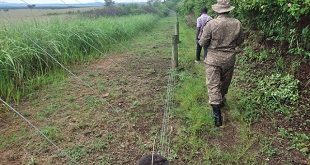
Tax waiver on brown rice is meant to reduce its price from Shs 4,500 to Shs 3,000 per kilogramme
The good news for rice consumers in Uganda is that if the Ministry of Finance, Planning and Economic Development sticks to its guns to have unprocessed rice commonly known as “brown rice” imported into the country duty free, the price of the commodity will drop in the coming weeks.
The problem, however, is that it could weaken demand for the locally produced rice if necessary measures are not put in place to protect the local producers.
Matia Kasaija, the Minister for Finance, Planning and Economic Development said in his letter dated March 30 to the Uganda Revenue Authority that the government waived tax on the import of brown rice effective April.01 for the first four months to stabilise price of the commodity, which had risen by about 30% since January.
The surge in the price of the commodity is attributed to the prolonged drought leading to food shortage in different parts of the country. The latest National Food Security Assessment Report compiled by an inter-ministerial team, showed that the food insecurity that had afflicted 1.3 million people in November 2016, had ravaged 10.9 million people by January 2017, with at least 1.6 million Ugandans already suffering food crisis.
“Owing to the food security situation in the country and the need for an appropriate response, Cabinet approved an import duty waiver for unprocessed rice among others, to bring down food prices for those who can afford to purchase on their own,” he said.
Kasaija said the ministry has agreed with the rice millers to sell their product at not more than Shs3, 000 per kilogramme on retail, down from the current Shs4, 500 per kilogramme.
He had also requested the third Prime Minister and Minister of East African Community, Kirunda Kivejinja, to proceed and obtain the duty waiver from the East African Community secretariat.
The government currently considers rice as an emerging priority crop with potential to meet the local food security demands and eradicating poverty through export of surplus to the regional markets.
But this has not gone well with his counterpart in the trade ministry, Amelia Kyambadde. She has rejected the new incentive arguing that it will hurt local rice producers. She says her ministry’s position is that the import of brown rice should be within a short period with clearly stated volumes to deal with famine.
“The Ministry of Finance is yet to come up with these specific volumes and ensure that that rice is not re-exported to the regional markets,” She told The Independent on May 03.
“Failure to have that agreed upon, we are not for it. We are going to have a meeting with Finance soon.”
Kyambadde, however, could not exactly state what her ministry will do if the finance ministry fails to adhere to the conditions.
Data from the Ministry of Agriculture, Animal Industry and Fisheries shows that rice production in the country stands at 237,000 metric tonnes yet consumption stands at 444,468 metric tonnes per annum.
In addition, the country also re-exports rice to the neigbhouring markets especially South Sudan and the eastern Democratic Republic of Congo.
This means that Uganda alone faces a shortage of 207, 468 metric tonnes of rice per annum, with the deficit plugged by imports. The government is now looking at producing at least 680,000metric tonnes of rice by 2020 valued at US$376million.
On April 26, the Speaker of Parliament, Rebecca Kadaga, weighed-in in support of Kyambadde, raising concerns as to why the finance ministry was exempting tax on imported unprocessed rice instead of protecting local producers.
“What is the rationale for waiving taxes on imported rice? Is it import substitution, because we grow rice in this country,” Kadaga said.
“The government needs to tell us how they are going to handle local producers because we have been talking for a long time, Buy Uganda Build Uganda and now we are promoting rice of the foreigners and taxing our own rice here.”
 The Independent Uganda: You get the Truth we Pay the Price
The Independent Uganda: You get the Truth we Pay the Price



